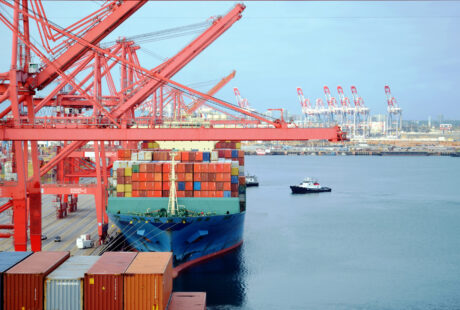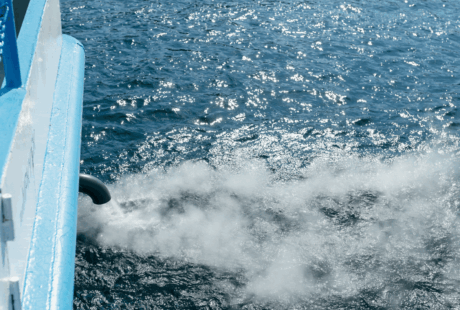Shipping companies must sign up to the global deal to end deforestation announced today at the UN climate change conference in Glasgow, and commit to not carry deforestation-linked commodities.
As part of a global deal to end and reverse deforestation by 2030, governments of over 100 countries have committed to remove deforestation from the global trade of food and other agricultural products such as palm oil, soya and cocoa.
These commodities drive forest loss by cutting down trees to make space for animals to graze or crops to grow.
More than 30 of the world’s biggest companies have also committed to end business activities linked to deforestation.
However, to date, none of the biggest dry bulk shipping companies which directly facilitate and profit from the trade in deforestation-linked commodities such as soy, cocoa, palm oil and coffee have joined the commitment.
We urge all of the below largest Dry Bulk shipping companies, and the whole shipping industry including companies that own Dry Bulk vessels as part of their diversified fleets, to stop facilitating the trade in deforestation-linked commodities, by halting all business with companies identified as driving deforestation.
Seanergy Maritime – Dry Bulk
Navios Maritime Partners – Dry Bulk
Golden Ocean – Dry Bulk
Eagle Bulk – Dry Bulk
Genco Shipping – Dry Bulk
Safe Bulkers – Dry Bulk
Scorpio Bulkers – Dry Bulk
Star Bulk – Dry Bulk
In June, Greenpeace activists visited a bulk carrier in France arriving from Brazil with a cargo of soybeans from Brazil’s Cerrado region and painted stop deforestation on the hull. Soybean farming is the primary driver of land use conversion and is driven by the biggest industrial players. If we are to prevent climate change, we must end imported deforestation.
Dr Lucy Gilliam, Seas at Risk, said: “Taking unsustainable forest products out of global trade can only help shipping meet its own climate commitments. Now we should start asking what else is being shipped that is harmful and unnecessary. Less trade could easily be an important part of what gets shipping to zero in a timeframe that saves 1.5 degrees. Cop26 is working hard for a new climate neutral vision of the future; the shipping industry needs to do the same and stop thinking all that needs to change is the fuel they pour in their tanks”.
Nico Muzi, Europe Director of Mighty Earth, said: “Bulk carriers should stop turning a blind eye to the glaring issue of carrying agricultural commodities resulting from the destruction of the world’s remaining forests. If bulk carriers want to stop feeding deforestation and be part of the solution, they need to drop Cargill and Bunge, two of the worst forest destroyers in the world.”
Background
Dry bulk shipping refers to the movement of significant commodities carried in bulk (rather than separated into containers), the largest such trades being iron ore, coal, and grains, but also lumber, logs and other forestry products. Dry Bulk commodities accounted for over 5 billion tonnes of seaborne trade in 2019, almost half of everything being shipped globally.
Grain is one of the biggest dry bulk cargoes: 477 million tonnes of grains were shipped globally in 2019 (including (wheat, coarse grain and soybean), as well as 382 million tonnes of Forest Products
Posted on: 2 November 2021



